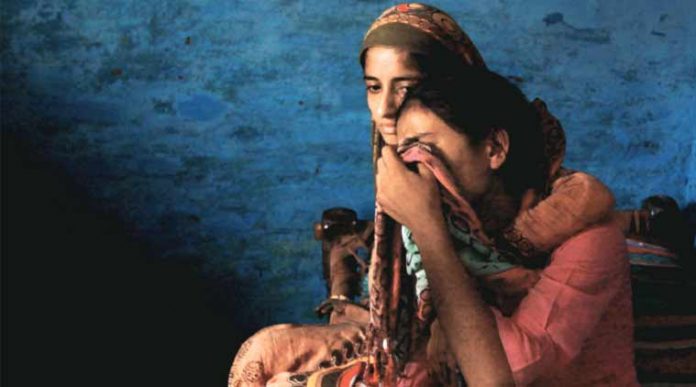By Anand Singh
Bisadah (Uttar Pradesh), (IANS) : In the area where a Hindu mob murdered Mohammad Akhlaq after accusing him of eating beef, the election fever of Uttar Pradesh is laced with old tensions.
The few Muslim families here are unwilling to speak — unlike almost everyone else in the state — on their preferences in the staggered state polls starting on Saturday.
Posters and flags of political parties do flutter atop houses and shops at Dadri. But old issues are at play.
Predictably, the Bharatiya Janata Party (BJP) has raked up cow slaughter, fully knowing that the issue could polarise Hindus and Muslims.
Union Home Minister Rajnath Singh held a rally here to canvass for BJP’s Tejpal Singh Nagar in the Dadri constituency. Dadri, about 50 km from Delhi, will vote in the first phase of assembly polls on Saturday.
In the Rajput-dominated village, slogans are raised to hail Prime Minister Narendra Modi. One can hardly spot a flag of any other party in the village. Even the walls are painted with BJP slogans.
A huge poster of BJP President Amit Shah and Modi promises to shut down slaughter homes across Uttar Pradesh if the BJP is elected to power in the country’s most populous state.
Pratap Singh Sisodia, in his late 60s, told IANS: “Cow slaughter is going to be a major issue in this election.”
Not surprisingly, the more pressing issues of poor electricity supply, law and order situation and lack of schools have taken a backstage.
Even after 16 months of Akhlaq’s lynching, communal hostility is visible.
Akhlaq, 50, was at his home when a mob barged in, took out meat from his fridge, alleged it was beef which his family was consuming and carried out a murderous attack.
The local Hindus accused the police of wrongly arresting 18 men from their village under pressure from the Akhilesh Yadav government to “appease” Muslims.
Others say that it was only Akhlaq’s family which was compensated by the state government.
Ravi Kumar, 21, one of those arrested after Akhlaq’s murder, died on November 4 in mysterious circumstances while in judicial custody.
A family member told IANS: “You see the pain of Akhlaq’s mother, but you can’t see the pain of Ravi’s mother? We didn’t even get Ravi’s autopsy report.”
Bisadah village is home to some 10,000 people, of whom 70 per cent are from the Rajput community. Muslims account for 15 per cent. The rest are lower castes.
“Rahul Gandhi and (Delhi Chief Minister) Arvind Kejriwal visited the village after Akhlaq’s death but they never visited Ravi’s family,” Tikam Singh, another villager, told IANS.
Another woman, Leelavati Devi, has two sons — Hariom Singh and Shriom Singh — still lodged in jail for the 2015 murder. People from the village provide food to the family.
Villager Rajesh Singh added: “Rajnath Singh’s rally is a sign we are not going to vote for the Congress or Samajwadi Party.”
In most Muslim homes, people are tight-lipped. To avoid talking, many even claimed they were merely visiting the village.
Mohammad Iliyas Khan said: “Everything has changed here after Akhlaq’s death. Earlier there used to be harmony in the village. Now that peace has gone.”


